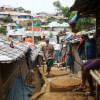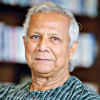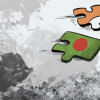Advocating right to internet access

In today's world, it is next to impossible to think of life without the internet, as it has become an indispensable instrument to impart knowledge and information and brought a revolution in different aspects of modern life. In a report published on 4 March 2014, the Committee on Culture, Science, Education and Media of the Parliamentary Assembly of the Council of Europe, stated that internet should be available to all regardless of age, place of residence or income and governments should recognise this as right both in law and practice. According to the committee, “the right to Internet access includes the right to access, receive and impart information and idea through the Internet without interference by public authority, regardless of frontiers…”
Realising the importance of Internet, some countries in different ways have recognised access to Internet as a human right or struck down laws encroaching such, e.g. in 2000, parliament of Estonia passed a law ensuring universal Internet access practically giving the status of a human right. In 2009, the highest court of France, i.e. the Constitutional Council, struck down portions of the HADOPI law declaring that violation of freedom of access to the Internet is an invasion of liberty guaranteed by article 11 of the declaration of 1789. In 2010 Constitutional Court of Costa Rica ruled in favour of Internet access from human rights perspective. In 2010, Finland, as the first country in the world, made broadband a legal right for every citizen. Article 5A of the Constitution of Greece also stipulates state's obligation to ensure Internet access.
In 2002, the government of Bangladesh recognised ICT as a “thrust sector” and we have seen some development in this sector as the government envisions building a 'digital Bangladesh'. According to section 29 of The Bangladesh Telecommunication Act, 2001, one of the objectives of BTRC is to ensure access to reliable, reasonably priced and modern internet-services for the people. But lack of democratic approach towards ensuring Internet access is hindering the development and enforcement of a number of human rights. Instead of taking adequate measures to enhance Cyber Security, time and again the government has arbitrarily denied people access to Internet partially, if not totally, e.g. the government blocked YouTube on March 2009, September 2012 and banned it for 260 days from September 17, 2012 to June 5, 2013. On 29 May 2010, BTRC blocked Facebook for 7 days. In 2013 the international Internet gateway operators were asked by BTRC to reduce the upload bandwidth of ISPs by 75%. On January 18, 2015 the regulators blocked mobile applications Viber, WhatsApp, Tango, Mypeople for 4 days. On November 18, 2015, Facebook, WhatsApp, Viber was blocked and there was no Internet for hours. All these were done in the name of public interest or to stop extremism. Ironically, those bans were reported to be innocuous as the government cyber security was not up to the mark, although people in general suffered much.
In 2008, European Parliament urged countries to “avoid adopting measures conflicting with civil liberties and human rights…such as the interruption of Internet access.”
In 2011, Frank La Rue, the UN Special Rapporteur, submitted a report at the 17th session the UN Human Rights Council which stated that cutting off users from internet access, regardless of the justification provided, to be disproportionate and thus a violation of article 19, paragraph 3, of the ICCPR. The 30th session of the UN human rights council indentified Internet restrictions as a general challenge to participation in political and public affairs. The report further stated that Internet has become an indispensable tool for realizing a range of human rights, combating inequality, and accelerating development and human progress.
At present, Internet access is crucially integrated and interrelated with right to freedom of expression and information, right to education, right to take part in cultural life, right to freedom of association and assembly, right to participate in the public affairs and right to development etc. Even though Bangladesh does not recognise right to Internet access as a human right, hindrance to Internet access directly affects the exercise of the human rights stated above, resulting in violation of those rights.
The writer is a student of LLM, University of Dhaka.

 For all latest news, follow The Daily Star's Google News channel.
For all latest news, follow The Daily Star's Google News channel. 







Comments